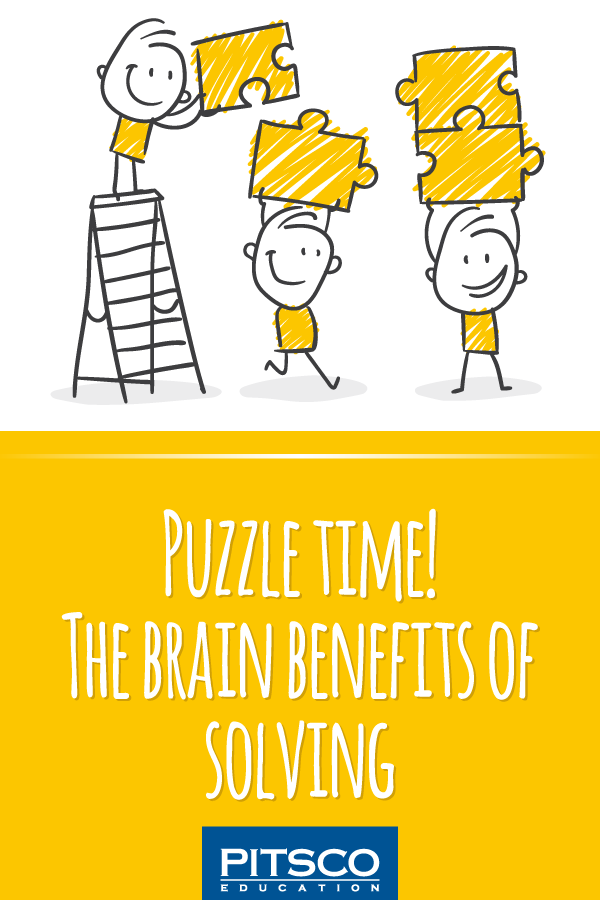Updated 6/5/24
Sometimes, we need to all step away from our screens and devices to unplug and work out . . . OK, don’t leave just yet! I mean a mental workout! Various types of puzzles and brain teasers are great ways to exercise your noodle or fun ways to pass the time. I for one am a huge fan of puzzles. Jigsaw puzzles, crossword puzzles, riddles – you name it, I love them. Luckily, there are lots of benefits to puzzling and, plus, the aha moments never get old.
Solving puzzles helps our brain engage in a stimulating cognitive activity. This means the more you work different parts of your brain, the sharper your brain becomes! January 29 is National Puzzle Day, so join us as we crack the code on how puzzles can benefit your brain to get you ready to celebrate!
Brain Gains
Puzzles activate the whole brain. When you work on a puzzle, you’re exercising the left and right sides of your brain at once. The left side of your brain controls analytics and logic while the right side uses creative and holistic thinking. So, whether you’re working on a jigsaw puzzle or trying to get out of an escape room, each side of your brain is working, but are both tackling the situation from a different angle to get your final result!
Try solving these Brain Games, Puzzles, and Quizzes!

Enhance Your Mind
Keeping your brain active doesn’t have an age requirement – anyone can do it. One of my favorite things about puzzles is that there can be a group of people who all fall in different age ranges working on the same puzzle together. Know what’s even cooler? No matter your age, puzzles can help improve everyone’s brain!
Short-Term Memory
In jigsaw puzzles, you have to remember colors, shapes, or sizes and be able to visualize where they fit in. This helps reinforce connections between our brain cells and also create new ones, which is a great way to improve short-term memory.
It never hurts to start improving your mind early! Bring some of these 10 Kids Memory Games to Help Improve Memory, Concentration, & Thinking Skills into your learning environment.
Visual and Spatial Reasoning
Visual and spatial reasoning is the ability to look at an object or problem and be able to manipulate it in your mind without any help. Games like Tetris, crosswords, or jigsaw puzzles can improve these skills. The more often you work on these various puzzles, the more it helps with things such as reading a map, driving a car, and even learning dance moves!

Problem-Solving Skills
Puzzles come along with a lot of trial and error. For even the simplest puzzles, you must think and develop strategies on how to approach and achieve your goal while testing your options over and over again. When you regularly solve puzzles, this can increase your ability to problem-solve more creatively and effectively.
Try out some of these activities to work on problem-solving:
Happy Mind, Happy Life
Puzzles are also a great way to clear your mind! Need a stress reliever or want a feel-good moment? Try tackling a puzzle! Your brain during puzzles increases the production of dopamine, which is a neurotransmitter responsible for your mood and concentration. When you finally solve or finish a part of a puzzle, you’ll get a rush of dopamine. It’s kind of like a pat on the back, saying, “Good job, keep going!”

Puzzling might also bring you a sense of relief. While working on a puzzle, your brain focuses on one task, which can lead your brain into a meditative state. Basically, doing a jigsaw puzzle can create the same benefits as if you’re meditating. Being able to relax and concentrate can lead to a better mindset and better stress-coping skills. So, what are you waiting for? Get puzzling!
We’d love to hear what puzzles you’re creating in your learning environment! Share your ideas with other educators in the comments!
MORE RESOURCES:








